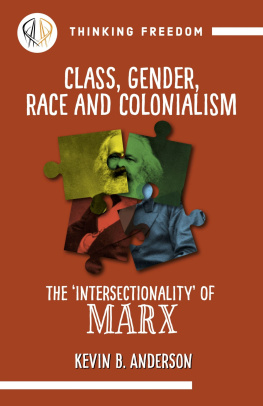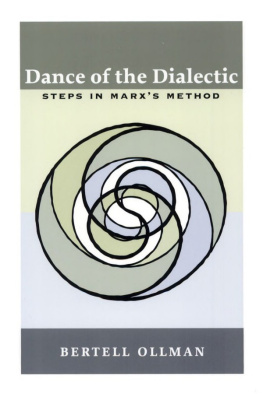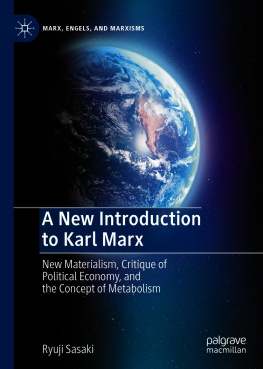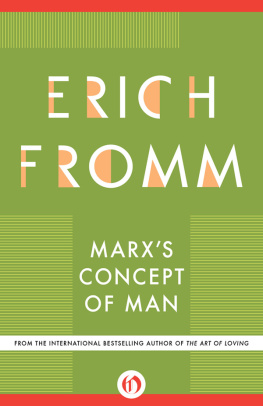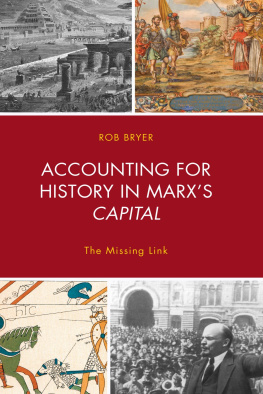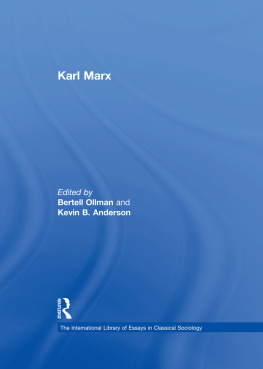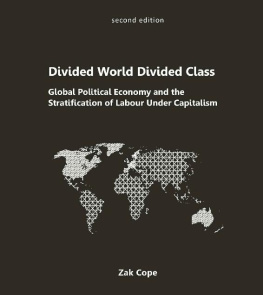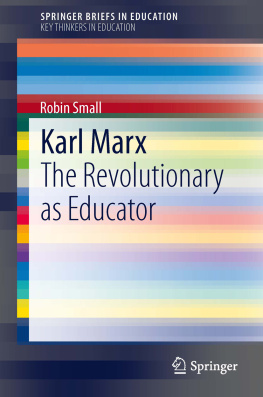It is clear today that the emancipation of labour from capitalist alienation and exploitation is a task that still confronts us. Marxs concept of the worker is not limited to European white males, but includes Irish and Black super-exploited and therefore doubly revolutionary workers, as well as women of all races and nations. But, his research and his concept of revolution go further, incorporating a wide range of agrarian non-capitalist societies of his time, from India to Russia and from Algeria to the Indigenous peoples of the Americas, often emphasising their gender relations. In his last, still partially unpublished writings, he turns his gaze Eastward and Southward. In these regions outside Western Europe, he finds important revolutionary possibilities among peasants and their ancient communistic social structures, even as these are being undermined by their formal subsumption under the rule of capital. In his last published text, he envisions an alliance between these non-working-class strata and the Western European working class.
Proletarians [Proletarier] of all countries, unite! It is with these ringing words that Karl Marx and Friedrich Engels famously conclude their Communist Manifesto in 1848.[1] This suggests a broad class struggle involving millions of workers across national and regional boundaries against their collective enemies, capital and landed property. In that same Manifesto, Marx and Engels also write, in another well-known passage, that the workers have no country, and further that national differences and antagonisms between peoples [Vlker] are shrinking more and more with the development of the capitalist world market.[2]
An Abstract, General Theory of Capital and Labour
In the Manifesto, we are presented with large social forces, the proletariat or working class and its opponents, contending with each other on an international scale, where differences of culture, nationality, and geography have been overturned, or are being overturned, as capital is coming to rule the world and the workers are organising their resistance to it. Marx and Engels are writing here at a very high level of generality, abstracting from the specificities of the life experience of Western European and North American workers, and predicting that their lot will soon become that of the worlds working people, at that time mainly peasants labouring in predominantly agrarian societies.
It is in this sense that Marx and Engels also write that capitalism has through its exploitation of the world market given a cosmopolitan character to production and consumption in every country. They add: National one-sidedness and narrow-mindedness become more and more impossible.[3] Capital creates a world culture alongside its world market, forcing itself into every corner of the globe. They go so far as to applaud, in terms imbued with Eurocentric condescension, how capitalism draws even the most barbarian nations into civilisation as it batters down all Chinese walls and forces these barbarians to adopt the bourgeois mode of production.[4] While pain is produced as old societies are destroyed, capital is carrying out its historic mission, the creation of more massive and more colossal productive forces than have all preceding generations put together.[5]
Two decades later, in the 1867 preface to Capital, Marx writes, with a similar logic emphasising abstraction, that the value form that is at the core of capitalist production cannot be studied only empirically with regard to specific commodities produced. He adds: Why? Because the complete body is easier to study than its cells. Therefore, to analyse capitalism and its value form properly and fully, one must resort to the power of abstraction in order to examine commodity production as a whole.[6]

